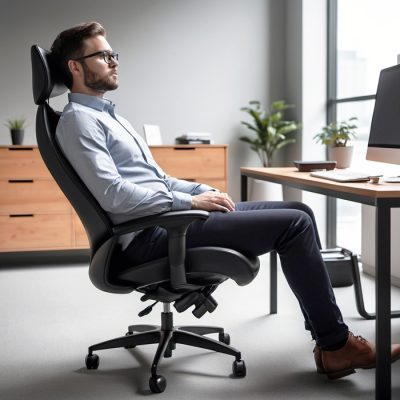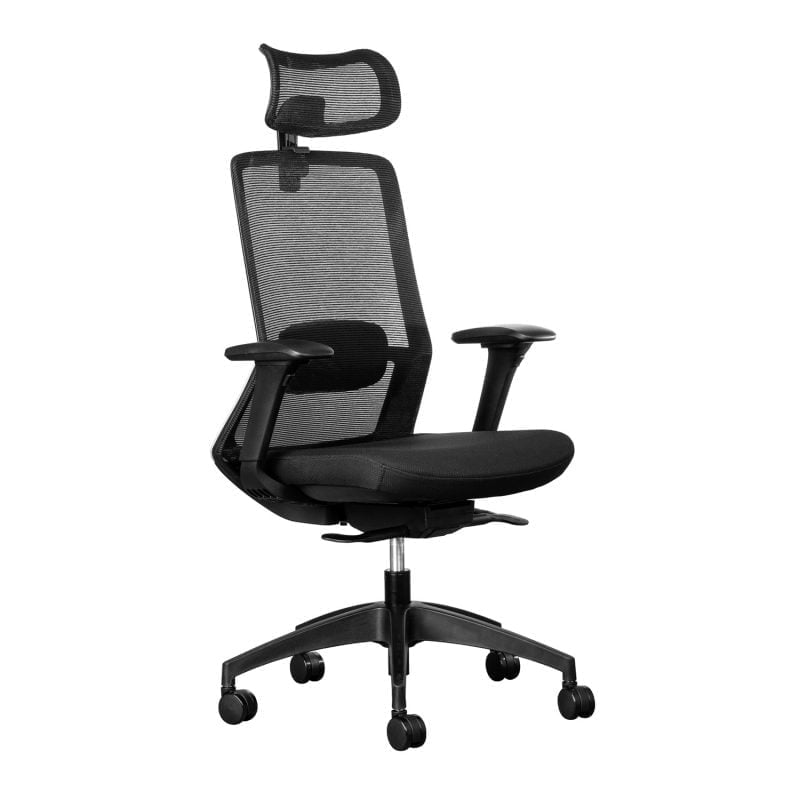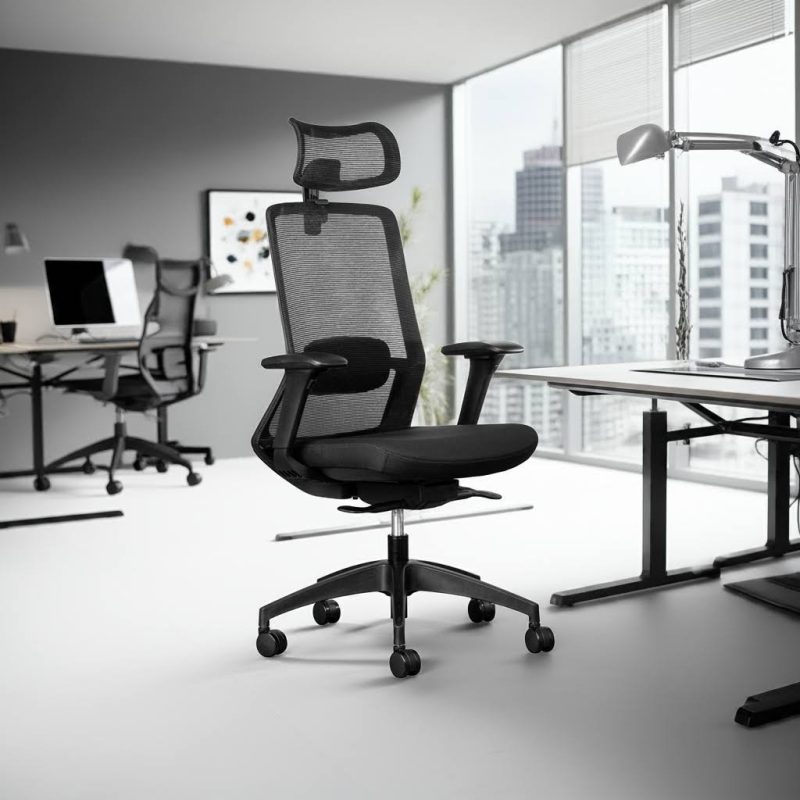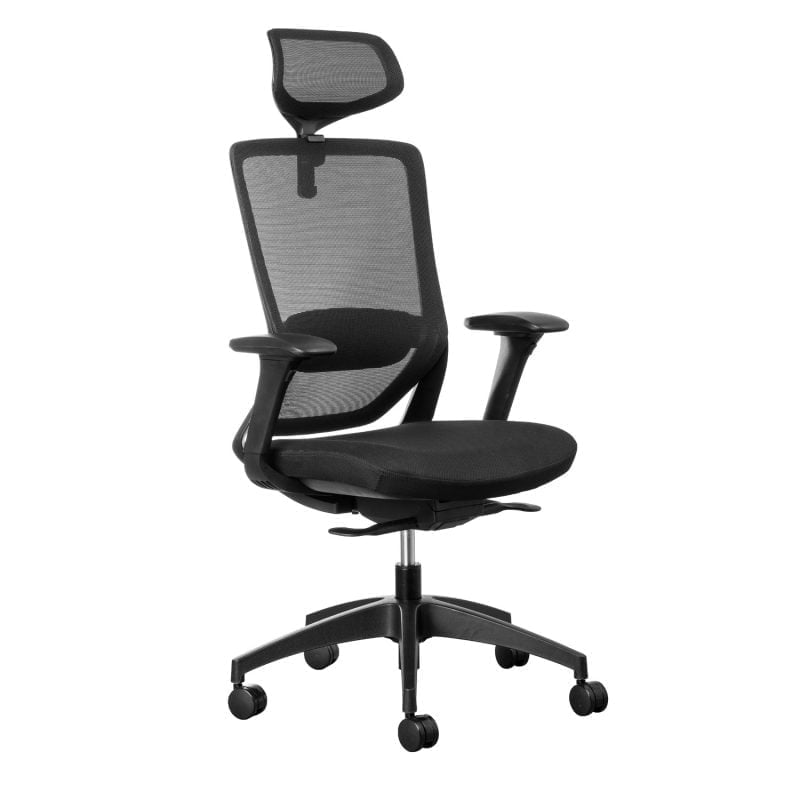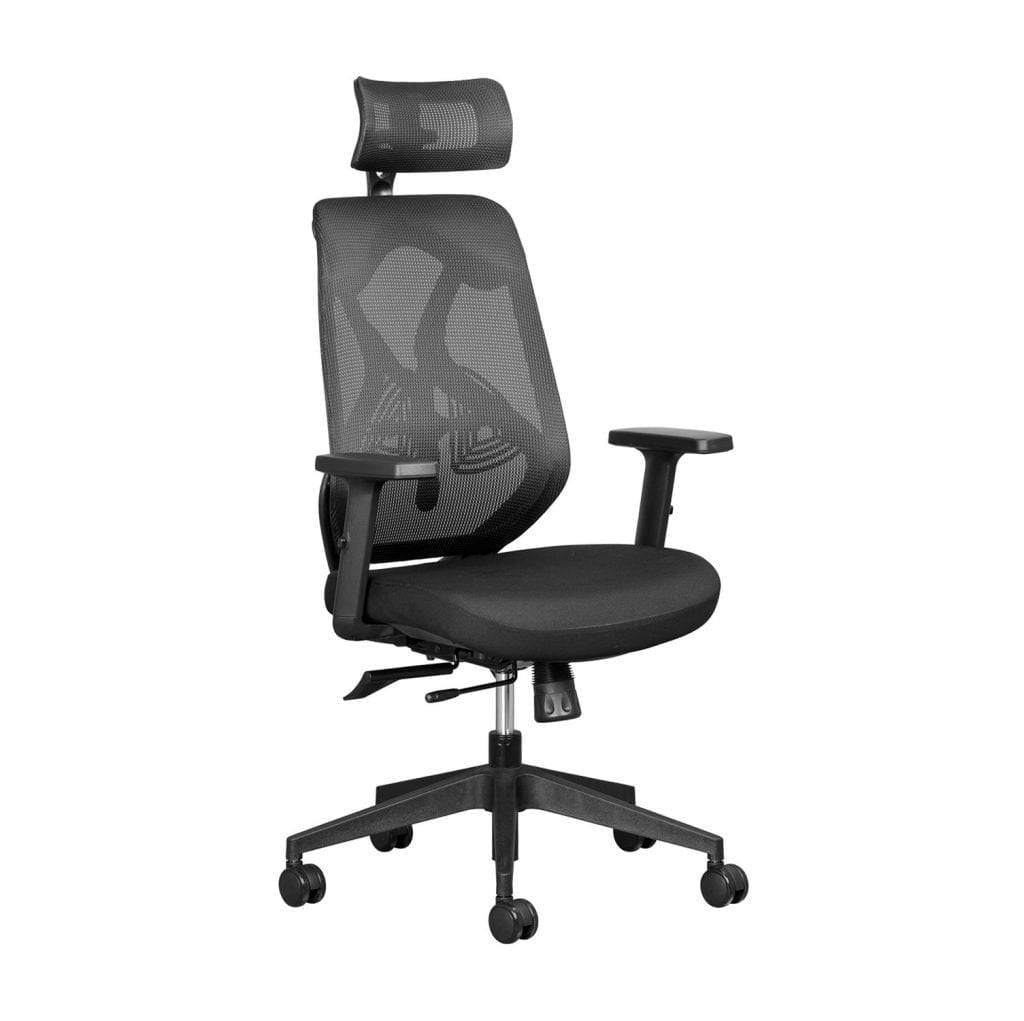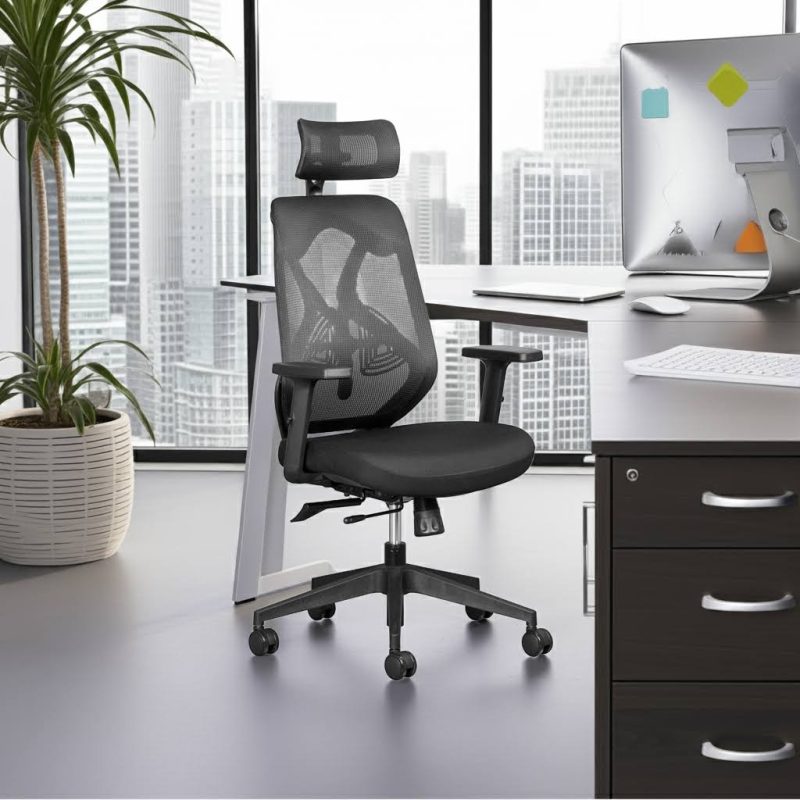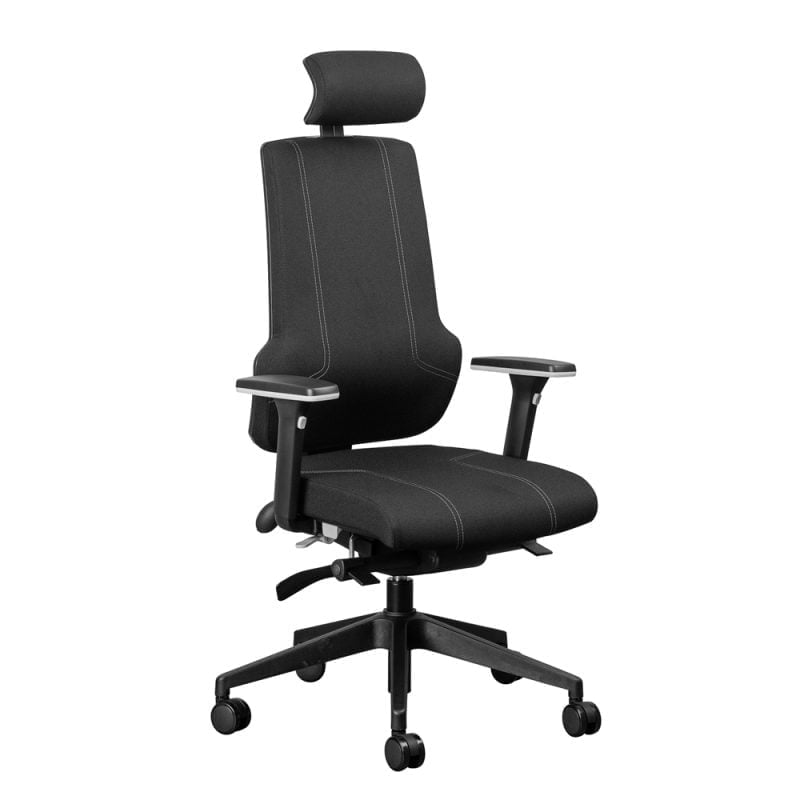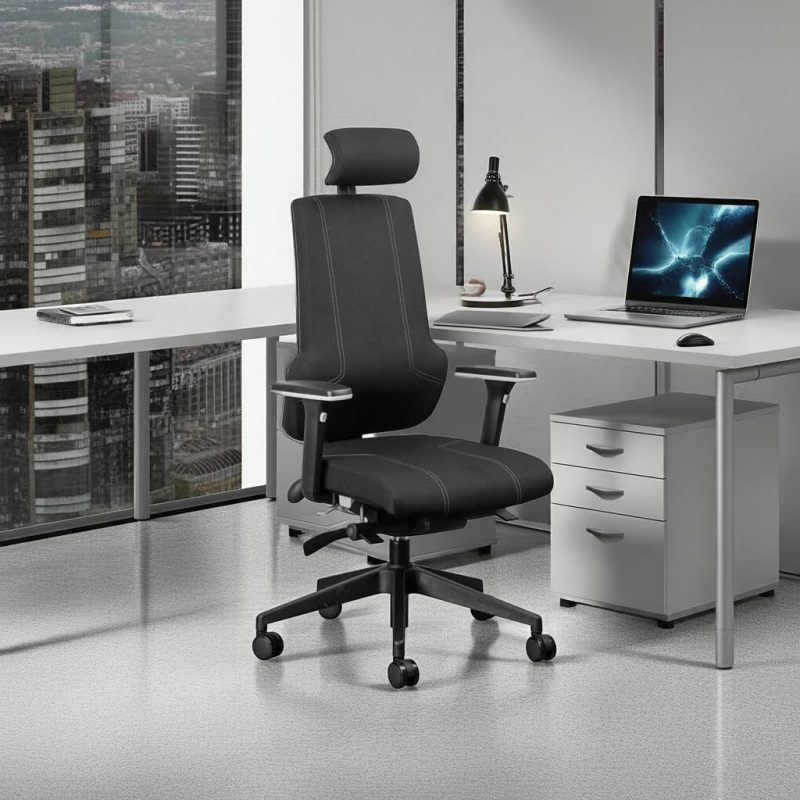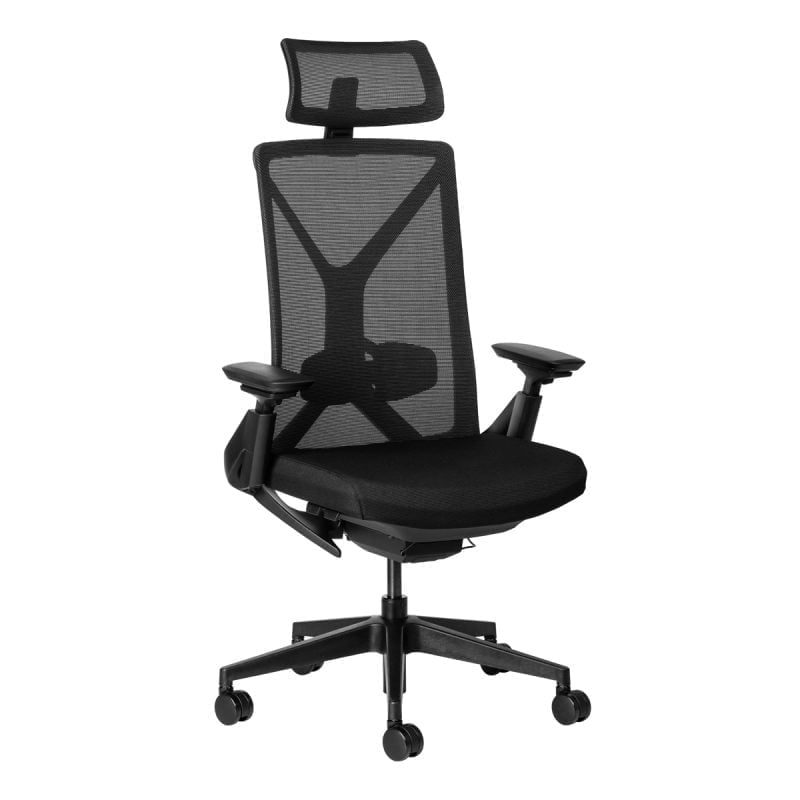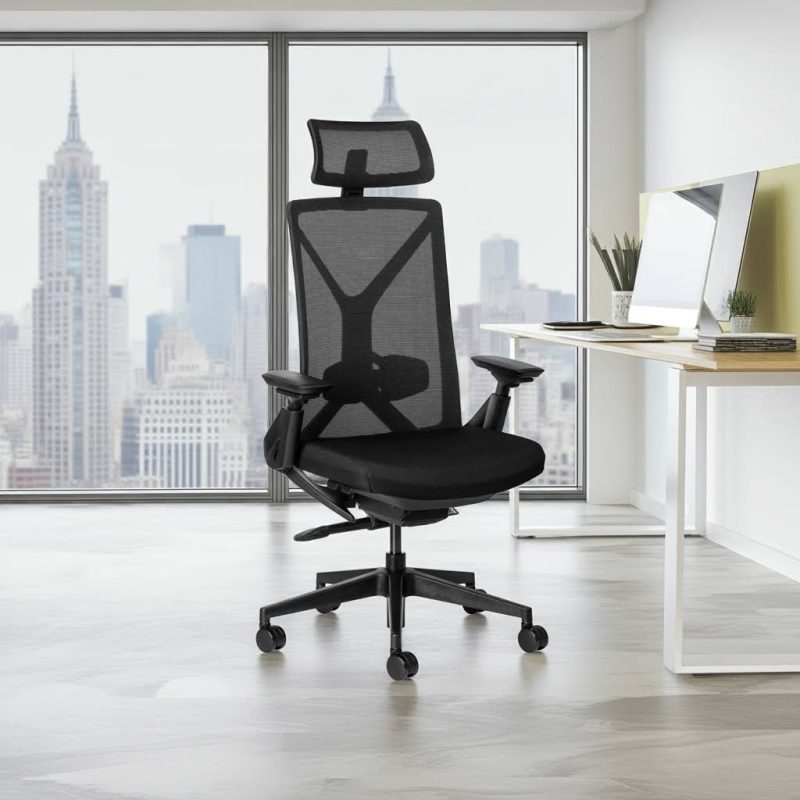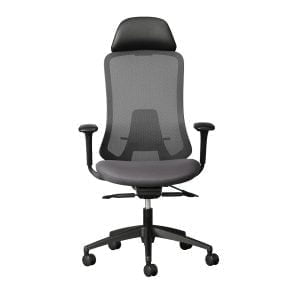If you are the typical nine to fiver, you probably spend the majority of your time sitting. You may take frequent breaks to stretch and walk around, but if you are not sitting in a comfortable office chair, you will probably feel sore at the end of the day. Whether you are working long hours from home or in an executive office, it’s important to have the most comfortable chair to help keep your back intact. Office and Desk Chairs: 10 articles to read before you buy.

Fortunately, the days are long gone when a comfortable office chair was likened to sitting on a throne with a large rigid seat and backrest, upholstered in plush leather.
Use our CHAIR SELECTOR to help you choose the most comfortable office chair!
The 5 Most Comfortable Office Chairs Available in South Africa - Shop NOW!
Based on extensive customer feedback and with the assistance of our Ergonomics Risk Facilitators, we have selected our 5 most comfortable office chairs for long work or gaming sessions.
- DELIVERED FULLY ASSEMBLED FOR INSTANT COMFORT - Avoid the time and hassle of putting the chairs together!
- 100% SATISFACTION GUARANTEE - Not satisfied? Return the chair within 14 days for a full refund. NO questions asked.
- FREE DELIVERY - All our chairs are delivered free-of-charge throughout South Africa
- IN STOCK - All items purchased online are in stock and available for immediate delivery!
- EXTENDED WARRANTIES - For your peace of mind, most products have a 5 or 10 year warranty.
Capri Ergonomic Office Chair
Fenix Ergonomic Office Chair
Leila Ergonomic Office Chair
OrthoMax Orthopedic Chair
Yen Ergonomic Office Chair
A comfortable ergonomic office chair is one that ensures a good posture when sitting at a desk. The consequences of sitting on the wrong chair.
8 Key requirements for a comfortable chair for your home or office
1. Seat Height Adjustment
The office chair seat height should be easily adjustable. A gas height adjustment lever is the easiest way to achieve this.
A seat height adjustment range between 41cm and 53cm should work effectively for most individuals. This range allows you to position yourself in a manner that ensures your feet are flat on the ground, while your thighs are slightly sloping downwards towards your knees. Achieving this posture is essential for maintaining comfort and reducing fatigue during long periods of sitting. In a perfect world, you should be able to attain this ideal sitting position without the need for a footrest. For improved comfort, a height adjustable standing desk should be part of this ideal solution, offering you the flexibility to alternate between sitting and standing throughout your working day. The 7 Advantages of a Standing Desk
What is the correct height for my desk, computer monitor and office chair? This question is crucial for ensuring that your workspace is set up optimally to promote good posture and reduce strain.
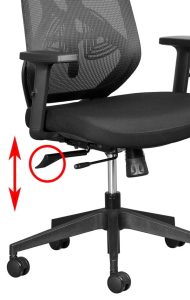
2. Seat Width and Depth
The seat on the office chair should have enough width and depth to provide comfortable support. A width of 43cm – 50cm is standard. The depth of the seat (from the front to the back of the seat), should allow you to sit with your back against the backrest while leaving a gap between the back of your knees and the front edge of the seat that is approximately the size of your fist.
To provide greater comfort, office chairs with seat depth adjustment are becoming very popular. Shorter people often perch on the front of the seat, getting no support from the backrest. If you are short, you may need to reduce the seat depth. This will allow you to use the backrest correctly and reduce pressure on the back of your thighs.
If you have long legs, seat depth adjustment will allow you to support your thighs correctly. See our Range of Office Chairs with Seat Depth Adjustment.
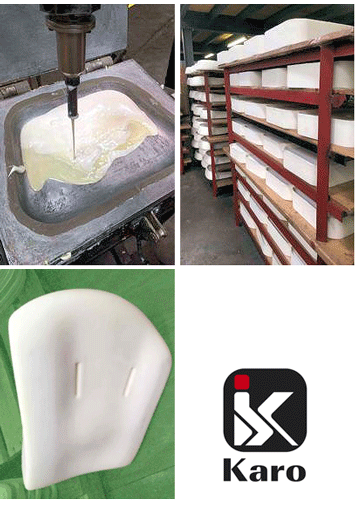
3. Moulded Seat Foam is a MUST for a Comfortable Office Chair
The comfort of your seat should not be determined the moment you sit down. Sitting on a chair with soft, thick foam might initially feel like heaven on earth, but after sitting all day you may feel quite different!
A comfortable office chair that is used for long hours must have a moulded foam seat. Just like a car seat, this must provide firm support where needed, and not result in excess pressure on the thighs which inhibits blood flow to the lower legs.
4. Seat Tilt Adjustment
An adjustable forward and backward tilt of the seat should be a standard feature on any Wellback Orthopedic Chair. Typically the tilt is limited to a forward slope of about 50.
The purpose of a forward sloping seat is to ensure that your knees are below the level of your hips while you are sitting. Why is this important? Find out What actually happens when you sit.

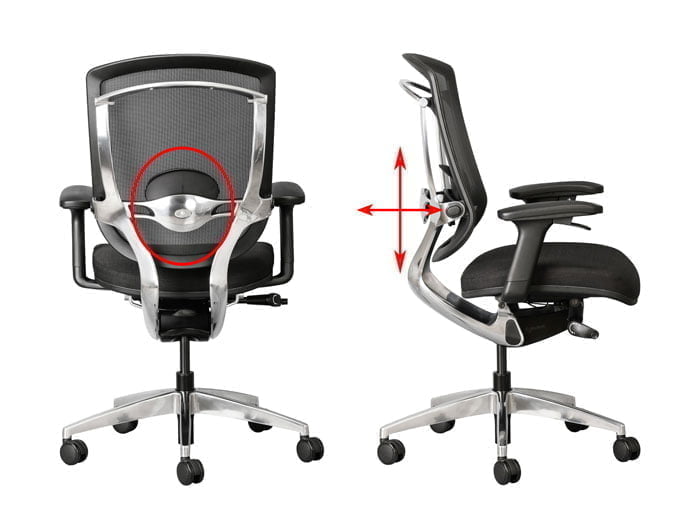
5. Adjustable Lumbar Support
Lower back support is very important in a comfortable office chair. The lumbar spine has an inward curve and sitting for extended periods of time without proper lumbar support leads to slouching, resulting in excessive stress in the lower back.
A comfortable office chair should have a fully adjustable lumbar support.
6. Backrest
The most comfortable executive office chair, especially if you are going to use it for long hours, will have a backrest 30cm – 48cm wide. It should be adjustable in angle and height (if the lumbar adjustment cannot be height adjusted). It should be able to support the natural curve of your spine, again with special attention paid to proper support of the lumbar region.
Both mesh and upholstered backrests are popular, and really it’s a matter of personal choice. Mesh chairs are more modern with their slim design and stylish looks. A good mesh backrest moulds itself to the shape of your back and allows your body to breathe.
Upholstered chair backrests are often not as comfortable in a hot climate, especially if you don’t have an air conditioned home office.
Do modern mesh back office chairs give you the best back support?
7. Adjustable Armrests
Office chair armrests should be adjustable. They should allow your arms to rest comfortably and your shoulders should be relaxed. Your elbows and lower arms should rest lightly on the pads and your forearms should not be on the armrest when using a keyboard.
8. Headrest (optional)
A headrest can add to your comfort if you need additional neck and/or head support.
Headrests are particularly helpful for people with neck and shoulder problems, and they allow the muscles in this area to relax, thereby increasing the blood flow.
The most comfortable headrest on an executive office chair can both rotate and adjust vertically.
Headrests are also great when taking a few minutes to lean back to relax, for example while talking to a colleague or on the phone. How do I choose the right ergonomic desk chair for me?
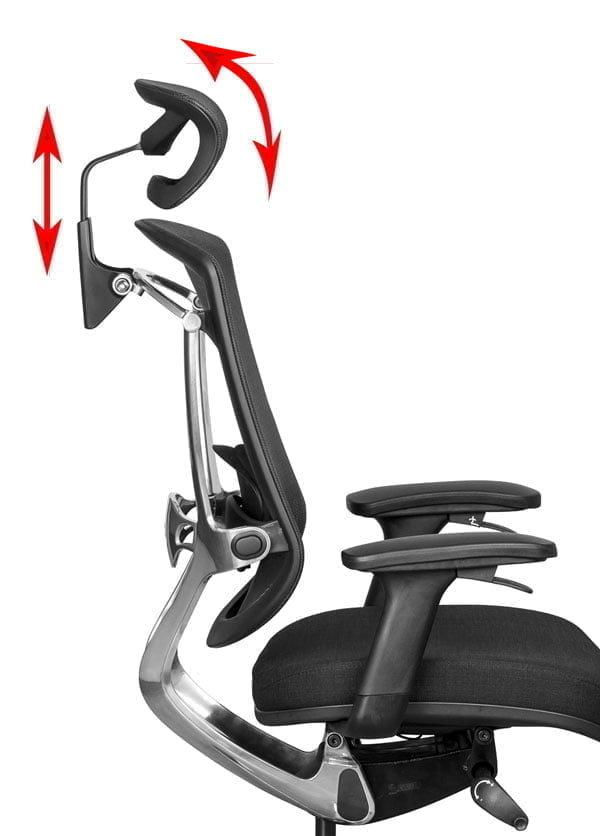
By the same author:
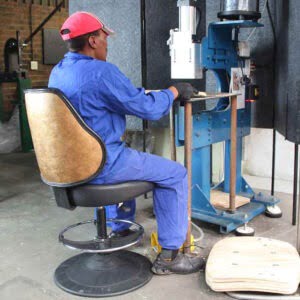
Why Every Production Line Needs the Right Industrial Chair
Invest in the right industrial chair to boost productivity, reduce injuries, and support factory workers on your production line.

Why Automated Fabric Cutting improves quality
High quality office and casino seating requires advanced automation, like automated fabric cutting.

Why an ergonomic chair has even more relevance in a 4-day work week
A 4-day work week can result in people sitting continuously for long hours, making an ergonomic chair a “no brainer”.


